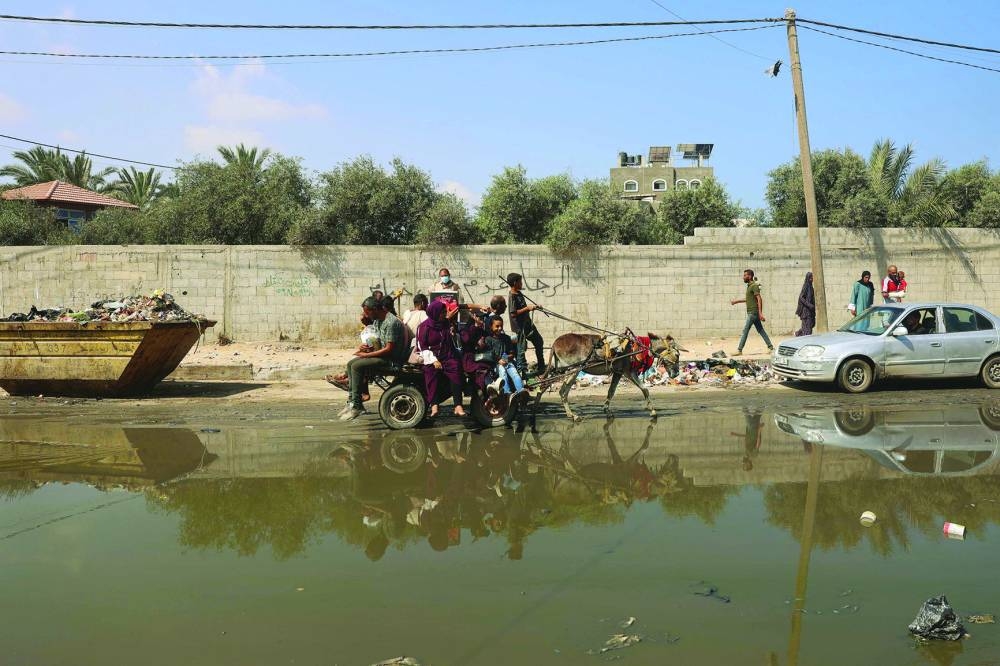A top WHO official said yesterday he was “extremely worried” over possible outbreaks in war-torn Gaza after poliovirus was detected in the sewage, warning that communicable diseases could cause more deaths than injuries.
United Nations agencies said last week that the Global Polio Laboratory Network found vaccine-derived type-2 poliovirus in six environmental samples collected from the sewage in the Gaza Strip on June 23. Ayadil Saparbekov, the World Health Organisation’s head of health emergencies in the occupied Palestinian territories, stressed that “we have not yet collected human samples” so it remains unclear if anyone has actually been infected with the virus.
But he acknowledged to reporters in Geneva via video-link from Jerusalem, “I am very much worried”.
A type of vaccine against polio – a crippling and potentially fatal viral disease that mainly affects children under the age of five — contains small amounts of weakened but live polio which can occasionally cause outbreaks. Oral polio vaccine (OPV) replicates in the gut and can be passed to others through faecal-contaminated water — meaning it won’t hurt the child who has been vaccinated, but could infect their neighbours in places where hygiene and immunisation levels are low.
While epidemiological studies and risk assessments are continuing, Saparbekov said he was deeply concerned at the prospect of any diseases spreading in Gaza, which is facing a towering humanitarian crisis after more than nine months of war following Hamas’s deadly October first week storming of Israel.
“I’m extremely worried about outbreaks happening in Gaza,” he said, pointing to the confirmation late last year that hepatitis A was spreading, “and now we may have polio”.
“With the crippled health system, lack of water and sanitation, as well as lack of access of the population to health services... this is going to be a very bad situation,” he warned.
“We may have more people dying of different communicable diseases than from the injury-related diseases.”

Palestinians ride a donkey-drawn cart past a pool of sewage water on a street in Deir Al-Balah in the central Gaza Strip, yesterday.
